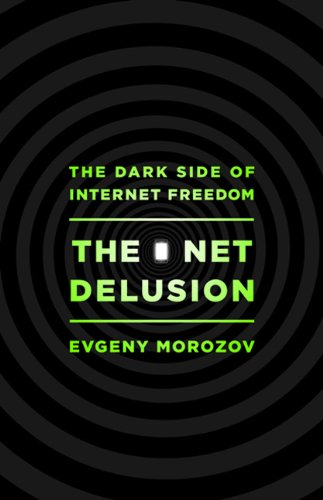Evgeny Morozov – The Net Delusion (2011)
The entire vocabulary of Western cyber-utopians, from “Twitter revolutions” to “the Great Firewall of China” is the product of a mythology that has no connection with the role technology actually plays in modern dictatorships, which have found diverse and clever ways to use technology to their advantage. Iranians aren’t on Twitter, internet access is often more a safety valve than a foothold for freedom, and your local security police would like you to reveal your social network on Facebook thank you very much.
Recommended: Yes. Morozov makes the same point, but in a more rational way, as Adam Curtis in All Watched Over..: Cyber-utopianism is worse than useless, it actively benefits the true power holders in a society.
Frank Rossavik – SV, Fra Kings Bay til Kongens bord (2011)
The rise and eventual taming of Norway’s Socialist Left Party. A good history uses its subject as a lens to see its world through. This one gets bogged down in names and dates, and has no vision, which is a shame, because whatever else you can say about SV’s tortured attempt at finding a third way between social democracy and communism, at least it was interesting, especially in its early newspaper incarnation. This isn’t.
Read: 60 pages, + the apologetic chapter on their flirtation with Communist dictators, a story that can’t be told honestly without at least offending someone. Rossavik seems unwilling to do that.
Recommended: No.

Pingback: Minireviews: Father Brown, Orientering « Bjørn Stærk's Max 256 Blog